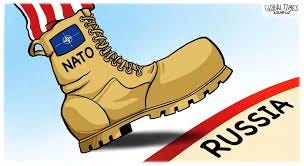In my column of March 25 on “The military situation in Ukraine,” I drew upon an article by Jacques Baud, published by the French Intelligence Research Center (CF2R). Baud was a colonel in the Swiss armed forces and was a member of the Swiss Strategic Intelligence Services. He subsequently worked in various UN missions in Africa, and he worked for NATO’s Political Affairs and Security Policy Division in Brussels. He holds degrees in International Security and Humanitarian Law from the Graduate Institute for International Relations in Geneva. He has written several books on warfare, intelligence and terrorism.
In the CF2R article, Baud describes the road to war from 2014 to 2021, during which the government of Ukraine launched attacks against two Russian-speaking regions that had declared themselves to be autonomous regions of Ukraine, a war that included the extensive use of ultra-right militias. In addition, Baud maintains that the Russian military operation launched on …


